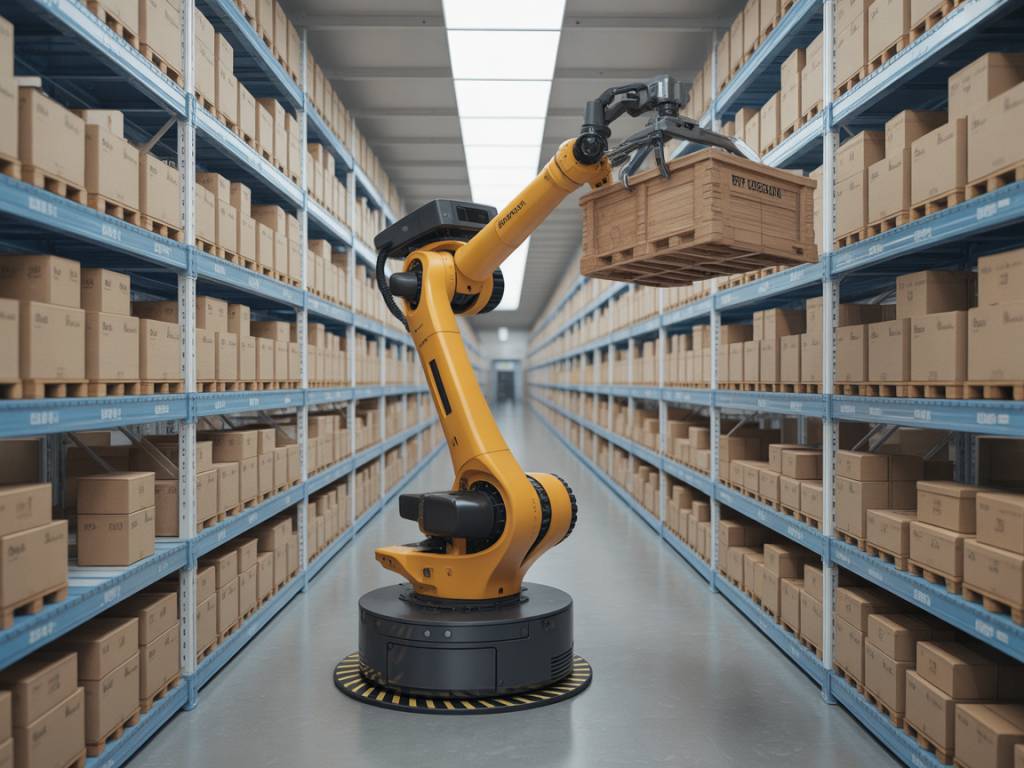Understanding Decentralized Supply Chains in Modern Logistics
In a world marked by digitization and global interconnectivity, traditional supply chains are undergoing a radical transformation. The shift from centralized models toward decentralized supply chains is redefining how goods move across the globe. At the heart of this transformation are two disruptive technologies: blockchain and robotics. Together, they enhance transparency, efficiency, and resilience—key elements for the future of logistics.
This article explores how decentralization, powered by distributed ledger technology and autonomous machines, is reshaping supply chain management today. Businesses investing in these innovations are unlocking new value, ensuring traceability, and reducing operational costs while adapting to increasing consumer demands for transparency and speed.
What Is a Decentralized Supply Chain?
A decentralized supply chain distributes data, control, and decision-making across a network of stakeholders rather than centralizing it within a single point. Instead of a hierarchical structure with a controlling node, each participant in the chain has equal access to relevant data and an active role in operations.
This structure offers significant advantages in today’s volatile and complex supply environment. By enabling real-time data sharing and minimizing single points of failure, decentralized supply systems bolster resilience against disruptions, such as geopolitical conflicts, pandemics, or climate-related events.
How Blockchain Supports Supply Chain Transparency
Blockchain technology plays a critical role in decentralizing logistics by offering a secure and immutable method for recording transactions and procedures. Each entry, or « block, » is linked to the previous one via cryptographic hashes. This ensures data integrity and builds trust among supply chain participants who often lack direct relationships with one another.
Here are key benefits of blockchain in supply chain transparency:
- Immutable Recordkeeping: Prevents data tampering and fraud by ensuring that records cannot be altered retroactively.
- End-to-End Visibility: Tracks items from origin to destination, enabling stakeholders to trace materials and verify authenticity in real-time.
- Smart Contracts: Automates transaction triggers when predefined conditions are met, reducing paperwork and delaying processes.
- Improved Compliance: Supports adherence to regulatory standards by offering transparent audits for food safety, pharmaceuticals, or sustainability.
Several platforms—such as IBM Food Trust, VeChain, and Provenance—have already demonstrated how blockchain can enhance logistical transparency. These systems foster consumer trust, enable ethical sourcing, and aid in prompt recalls in case of defective or unsafe products.
The Role of Robotics in Decentralized Logistics
While blockchain handles the digital exchange of trust and data, robotics brings physical automation and intelligence into the supply chain, especially in warehouses and last-mile delivery. Robotics in logistics includes automated guided vehicles (AGVs), drones, robotic arms, and AI-powered sorting systems. These machines contribute to decentralization by operating independently or semi-independently within distributed facilities.
The integration of robotics improves operational efficiency by:
- Reducing Human Error: Automating repeatable tasks with high precision.
- Accelerating Order Fulfillment: Enabling 24/7 inventory handling and shipment preparation.
- Lowering Labor Costs: Addressing challenges caused by labor shortages or high turnover rates.
- Enabling Micro-Fulfillment: Supporting smaller, decentralized warehouses located closer to urban areas for faster delivery.
Companies like Ocado, Amazon Robotics, and Boston Dynamics are at the forefront of robotic logistics. Their machines are making decentralized warehousing not only possible but increasingly prevalent in competitive e-commerce landscapes.
Synergizing Blockchain and Robotics for Transparent Logistics
When blockchain and robotics are combined, the result is a supply chain that is both digitally transparent and physically autonomous. Robotics collects data from each handling process, while blockchain records and secures this information across the network in real-time.
This synergy permits:
- Autonomous Auditing: Real-time robotic sensors and RFID readers report movements, damages, or deviations, automatically uploaded to the blockchain.
- Predictive Traceability: AI-driven robots forecast stock levels, while blockchain verifies procurement patterns to avoid shortages or overstocking.
- Instant Decision-Making: Smart contracts can instruct a robot to dispatch or hold a package based on compliance rules encoded in the system.
For instance, in cold chain logistics for vaccines, temperature-sensitive goods can be continuously monitored by IoT-enabled robotic containers. The conditions are recorded on the blockchain, ensuring that any breach prompts alert systems, corrective measures, and full traceability back to the source.
Challenges in Implementing Decentralized Supply Chains
Adoption of decentralized supply chain technologies isn’t without hurdles. Enterprises often face:
- High Upfront Investment: Procuring robotics and building blockchain infrastructure requires significant capital expenditure.
- Interoperability Constraints: Integrating new systems with legacy ERP and management tools can be challenging without standardized protocols.
- Scalability Issues: Blockchain platforms may experience slow transaction speeds when scaled to global volumes.
- Security and Data Privacy: Decentralizing data increases cybersecurity considerations and regulatory obligations.
Nonetheless, gradual integration and targeted use cases—such as automating warehousing or leveraging transparent sourcing for specific product lines—can provide manageable entry points for logistics operators aiming to experiment with or transition toward decentralization.
The Future of Logistics Is Transparent and Automated
The convergence of blockchain and robotics signals a shift toward smarter, more trustworthy supply networks. As businesses and consumers increasingly seek transparency, speed, and ethical sourcing, decentralized supply chains offer a compelling solution. This shift supports circular economy models, real-time collaboration, and resilient operations suited for a highly dynamic global trade environment.
Innovative logistics providers that embrace decentralized systems will be better positioned to respond to supply chain shocks, meet regulatory demands, and exceed the growing expectations of digitally savvy customers. By redefining how data is shared and how goods are moved, blockchain and robotics together pave the way for a transparent, decentralized logistics future.

